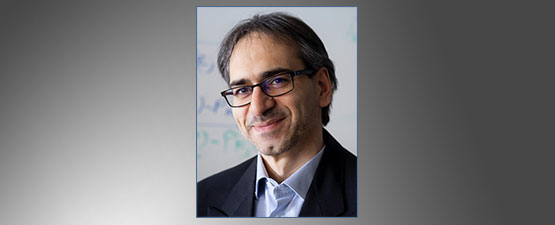Distinguished Lecture: Prof. Gesualdo Scutari (Purdue University, USA)
Date: 14 November 2023
Chapter: Twin Cities Chapter
Chapter Chair: Tao Zhang
Title: TBD
IEEE SPS has built a streamlined mechanism for employers to add a job announcement by simply filling in a simple job opportunity submission Web form related to a particular TC field. To submit job announcements for a particular Technical Committee, the submission form can be found by visiting the page below and selecting a particular TC.

Date: 14 November 2023
Chapter: Twin Cities Chapter
Chapter Chair: Tao Zhang
Title: TBD
We are excited to announce a two-year postdoc position in self-supervised and weakly-supervised learning for signals, e.g. speech, audio, text, and images. While the success of deep learning largely relies on the presence of substantial amounts of labeled data, the prevailing reality often entails the abundance of unlabeled or inadequately labeled data. This project focuses on the development of weakly-supervised and self-supervised learning methods to harness these data resources and gain deeper insights into the underlying mechanisms of these methods.
The ICASSP 2024 Speech Signal Improvement Challenge is intended to stimulate research in the area of improving the speech signal quality in communication systems. The speech signal quality can be measured with SIG in ITU-T P.835 and is still a top issue in audio communication and conferencing systems.
PLC is an important part of audio telecommunications technology and codec development, and methods for performing PLC using machine learning approaches are now becoming viable for practical use.
Someone with a hearing loss is listening to music via their hearing aids or headphones. The challenge is to develop a signal processing system that allows a personalised rebalancing of the music to improve the listening experience, for example by amplifying the vocals relative to the sound of the band.
The proposed challenge seeks to push the limits of deep learning algorithms for 3D cone beam computed tomography (CBCT) reconstruction from low-dose projection data (sinogram).
Speech-enabled systems often experience performance degradation in real-world scenarios, primarily due to adverse acoustic conditions and interactions among multiple speakers. Enhancing the front-end speech processing technology is vital for improving the performance of the back-end systems.
This challenge will require developing an engine for signal separation of radio-frequency (RF) waveforms. At inference time, a superposition of a signal of interest (SOI) and an interfering signal will be fed to the engine, which should recover the SOI by performing a sophisticated interference cancellation.
Introducing ICASSP 2024 SPGC competition aiming at reconstructing skin spectral reflectance in the visible (VIS) and near-infrared (NIR) spectral range from RGB images captured by everyday cameras, offering a transformative approach for cosmetic and beauty applications.